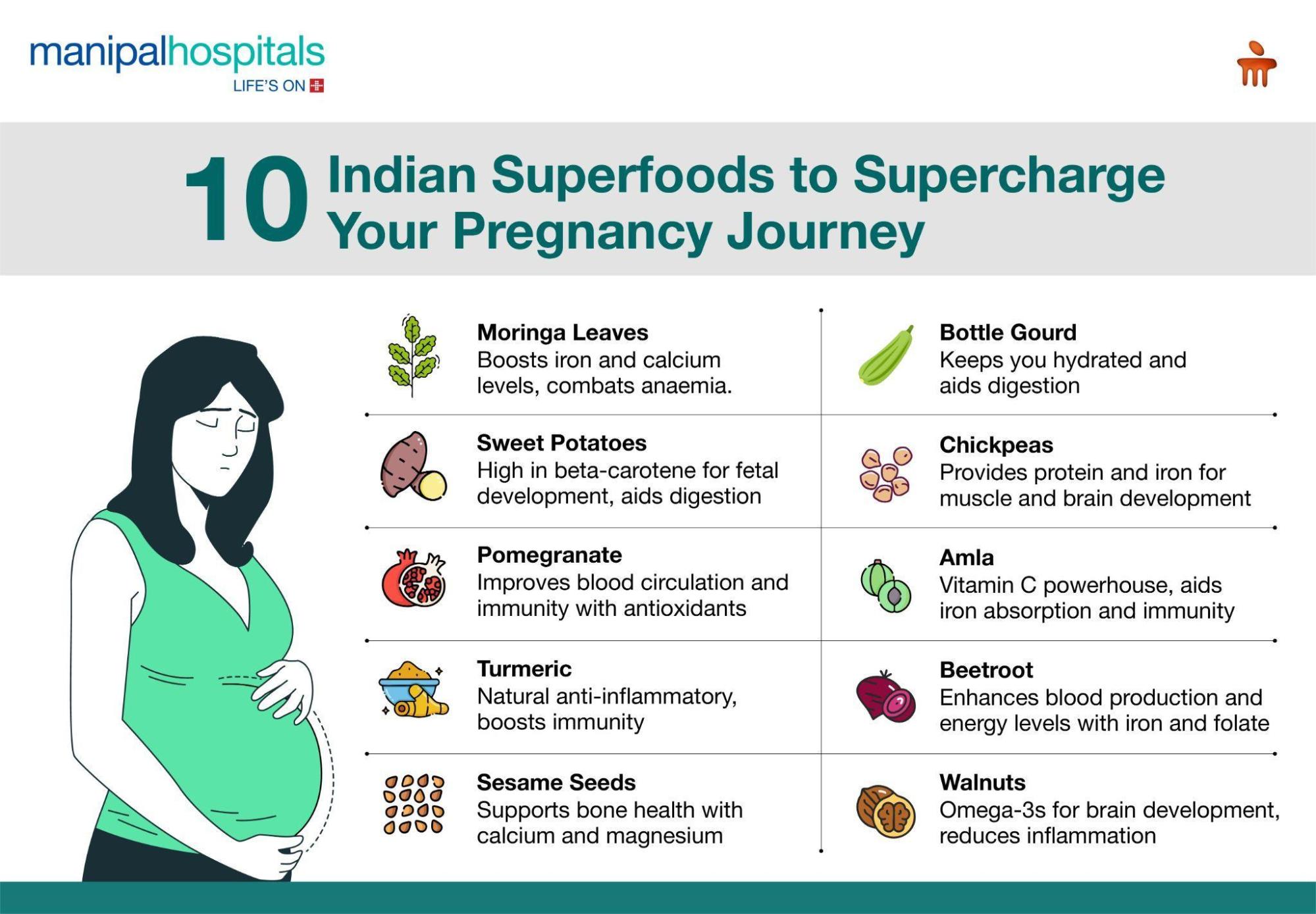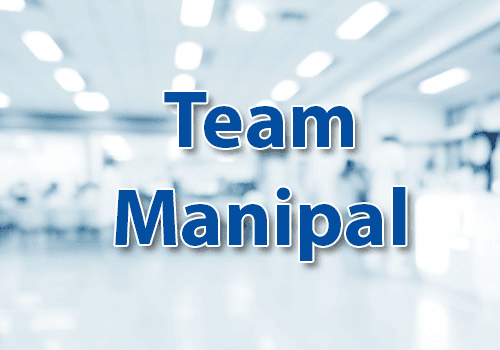
Are you expecting a little one? Congratulations! As you embark on this beautiful journey, one of the most important things you can do for both your health and your baby’s development is to nurture your body with the right foods. The right pregnancy diet plan not only fuels you with the energy you need but also supports the growth and well-being of your baby.
In India, we are blessed with a rich and diverse culinary tradition, packed with delicious and nutritious options perfect for every stage of pregnancy. Whether you're a first-time mom or have been through this before, navigating the world of pregnancy nutrition can be overwhelming. But don't worry – we’ve got you covered! In this blog, we’ll walk you through a trimester-wise Indian diet plan that’s easy to follow, full of flavours, and designed to give you and your baby all the nutrients you need for a healthy pregnancy. Plus, we’ll touch upon diet plans after pregnancy, including postpartum weight loss programs and tips for a weight gain diet plan if needed.
So, whether you’re craving a warm bowl of khichdi, looking to spice up your meals with healthy veggies, or wondering what superfoods to add to your plate, this guide will help you make informed choices. Let’s make your pregnancy journey as healthy, joyful, and delicious as possible – for both you and your growing baby.
Synopsis
Foods and Beverages to Eat During Pregnancy: Nourishing Your Body and Baby

During pregnancy, what you eat plays a vital role in your health and your baby’s growth. A well-balanced diet ensures you get the right nutrients to support your changing body and provides the building blocks for your baby’s development. In Indian cuisine, there is a rich variety of foods and beverages that are both nutritious and comforting. Let’s take a closer look at the key foods and drinks you should include in your pregnancy diet to ensure both you and your little one stay healthy and happy.
More Reads: 10 Tips For Healthy Pregnancy
1. Fruits and Vegetables: Nature’s Nutrient Powerhouses
Fruits and vegetables are packed with vitamins, minerals, and fibre, all essential for a healthy pregnancy. The high fibre content helps prevent constipation, a common issue during pregnancy, while vitamins like A and C support your immune system.
-
Leafy Greens: Spinach, fenugreek leaves (methi), and mustard greens (sarson) are rich in folate, which is essential for fetal development, particularly in the early stages.
-
Citrus Fruits: Oranges, lemons, and grapefruits provide a rich source of Vitamin C, boosting immunity and helping with the absorption of iron.
-
Berries and Apples: These fruits are high in antioxidants and fibre, making them great for digestion and overall health.
-
Bananas: An excellent source of potassium, bananas help manage blood pressure and prevent leg cramps, which are common during pregnancy.
2. Protein-Rich Foods: Building Blocks for Your Baby
Protein is essential for the development of your baby’s organs and tissues. It also helps in maintaining your muscle strength and energy levels.
-
Dal (Lentils): A staple in Indian diets, lentils like moong dal, toor dal, and masoor dal provide a great plant-based source of protein and fibre.
-
Eggs: Rich in protein and essential fats, eggs are an excellent choice for healthy pregnancy meals.
-
Chicken and Fish: Lean meats like chicken and fish (such as salmon or mackerel) provide high-quality protein and omega-3 fatty acids, which are important for the development of your baby’s brain.
-
Paneer: A great vegetarian source of protein, calcium, and fat, paneer can be included in your meals through curries, sandwiches, or even snacks.
More Reads: Preparing for Pregnancy: A Checklist for First-Time Mothers
3. Whole Grains: Sustained Energy for You
Whole grains provide the necessary carbs for energy and fibre for healthy digestion. They are also packed with B vitamins, iron, and magnesium.
-
Brown Rice: A healthier alternative to white rice, brown rice is rich in fibre and helps with blood sugar control.
-
Quinoa: This high-protein grain is a great substitute for rice or wheat-based products and contains all nine essential amino acids.
-
Oats: A quick and easy breakfast of oats is high in fibre and can help regulate blood sugar levels and promote good digestion.
-
Chapati or Paratha: Whole wheat chapatis or parathas made with ghee are a wholesome and filling option.
4. Dairy Products: Bone Health and Strong Immunity
Dairy products are packed with calcium and Vitamin D, which are essential for the development of your baby’s bones and teeth. They also support your immune system and provide protein.
-
Milk: Full-fat or skim milk is an excellent source of calcium and protein, which are vital during pregnancy.
-
Yoghurt: Rich in probiotics, yoghurt helps with digestion and boosts immunity. It’s also an excellent source of calcium.
-
Cheese: Hard cheeses like cheddar or paneer are high in calcium and protein. Make sure to choose pasteurized varieties to avoid any risks.
5. Healthy Fats: Essential for Baby’s Brain Development
Healthy fats are essential for your baby’s brain and eye development. They also help with nutrient absorption and provide long-lasting energy.
-
Ghee: Used in many Indian dishes, ghee is rich in healthy fats and aids in digestion and nutrient absorption.
-
Nuts and Seeds: Almonds, walnuts, chia seeds, and flaxseeds provide omega-3 fatty acids, fibre, and protein, which are great for both you and your baby’s brain health.
-
Coconut: Both fresh and dried coconut is a rich source of healthy fats and can be incorporated into curries, and smoothies, or eaten as a snack.
6. Hydration: Keep Yourself and Baby Well-Hydrated
Staying hydrated during pregnancy is crucial as it supports amniotic fluid levels, digestion, and overall well-being. Make sure to drink plenty of fluids throughout the day.
-
Water: The best and simplest way to stay hydrated. Aim for at least 8-10 glasses a day.
-
Coconut Water: A natural source of electrolytes, coconut water helps with hydration and is great for replenishing lost fluids.
-
Buttermilk: A common drink in Indian households, buttermilk is not only hydrating but also aids in digestion and prevents acidity.
-
Fresh Juices: Freshly squeezed juices made from fruits like oranges, pomegranate, or carrots provide essential vitamins and are a tasty way to stay hydrated.
More Reads: Coconut Water During Pregnancy Myths And Facts
Iron is crucial during pregnancy to help produce more blood for both you and your baby. A lack of iron can lead to anaemia, which can cause fatigue and complications.
-
Spinach and Fenugreek Leaves: Rich in non-heme iron, these leafy greens can be cooked into soups, stews, or curries.
-
Dates: Dates are an excellent source of iron and provide a quick energy boost, making them ideal for snacks.
-
Lentils and Chickpeas: These legumes are packed with iron and can be incorporated into a variety of dishes, including soups, curries, and salads
Foods and Beverages to Avoid During Pregnancy
Here’s a list of foods and beverages to exclude from your diet during pregnancy to ensure the health of both you and your baby:
-
Raw or Undercooked Meats and Seafood: Sushi, raw oysters, undercooked steaks, burgers, and deli meats to avoid the risk of harmful bacteria and parasites such as Salmonella and Toxoplasmosis.
-
Unpasteurized Dairy Products: Unpasteurized milk, and cheeses like brie, camembert, and blue cheese to avoid exposure to listeria and harmful bacteria.
-
High-Mercury Fish: Sharks, swordfish, king mackerel, and tilefish reduce the risk of mercury poisoning, which can affect your baby’s brain development.
-
Excessive Caffeine: Strong coffee, energy drinks, and caffeinated sodas to avoid excessive caffeine intake, which can increase the risk of miscarriage and low birth weight.
-
Alcohol: Any form of alcohol, including wine, beer, and spirits, can cause developmental issues and fetal alcohol spectrum disorders.
-
Raw or Undercooked Eggs: Raw eggs in homemade mayonnaise, mousse, and soft-boiled eggs to prevent Salmonella infections.
-
Unwashed Fruits and Vegetables: Raw, unwashed fruits and vegetables, particularly leafy greens, to eliminate the risk of harmful bacteria like Toxoplasma and Listeria.
-
Processed Junk Foods: Packaged snacks, fast food, sugary desserts, and overly processed meals to avoid excessive salt, sugar, and unhealthy fats that may contribute to gestational diabetes and excessive weight gain.
-
Excessive Salt and Sugar: High-sodium foods, sugary drinks, and snacks to prevent high blood pressure and gestational diabetes.
-
Certain Herbal Teas and Supplements: Herbal teas like peppermint, chamomile, and raspberry leaf unless approved by your healthcare provider, as they may trigger uterine contractions or interfere with medications.
-
Artificial Sweeteners: Aspartame, saccharin, and sucralose are found in many "sugar-free" products to avoid potentially harmful effects on your pregnancy.
Consult our gynaecologists if you need to know about foods and beverages to avoid during pregnancy.
More Reads: Tips To Reduce The Risk Of Birth Defects
Healthy Bites for Every Trimester: Your Indian Pregnancy Diet Guide
|
Trimester |
Foods to Include |
Why It’s Important |
|
First Trimester (Weeks 1–12) |
Protein: Lentils, tofu, paneer, eggs, chicken Fruits: Oranges, pomegranates, apples Vegetables: Spinach, carrots, sweet potatoes Whole Grains: Oats, brown rice, whole wheat roti Dairy: Milk, yoghurt, paneer |
Supports the early development of the baby’s organs. Helps manage morning sickness with vitamin C-rich fruits. Boosts energy with whole grains and iron-rich foods. |
|
Second Trimester (Weeks 13–26) |
Protein: Chicken, fish, legumes, nuts, eggs Fruits: Bananas, berries, guavas Vegetables: Broccoli, bottled gourd, bell peppers Whole Grains: Quinoa, brown rice, wheat chapati Healthy Fats: Avocados, almonds, flaxseeds |
Encourages growth and muscle development for both mother and baby. Rich in fibre for digestion and preventing constipation. Supports brain development with omega-3-rich foods like fish and flaxseeds. |
| Third Trimester (Weeks 27–40) |
Protein: Legumes, chicken, fish, dal, eggs Fruits: Apples, pomegranates, dates Vegetables: Kale, pumpkin, zucchini Whole Grains: Brown rice, multigrain roti, quinoa Dairy: Curd, milk, paneer, buttermilk Iron-Rich Foods: Spinach, chickpeas, dates |
Supports baby’s rapid growth and weight gain. Helps prepare for labour with energy-rich foods. Maintains healthy iron levels to prevent anaemia in the mother and promote blood circulation |
Post-Pregnancy Diet and Weight Management
After delivery, focusing on nutrition is just as crucial for recovery and breastfeeding. Consider incorporating a post-pregnancy weight loss program or a weight loss diet plan for women tailored to your needs.
-
Postpartum Weight Loss Program: Emphasize whole grains, lean proteins, and healthy fats. Incorporate gentle exercises to complement your diet.
-
Weight Gain Diet Plan: If you need to regain strength, include calorie-dense and nutrient-rich foods like ghee, paneer, nuts, and avocados.
Consult our gynaecology hospital if you need the best diet plan for weight loss after pregnancy.
More Reads: All About Weight Gain During Pregnancy
FAQ's
Focus on protein (lentils, paneer, eggs), vitamin-rich fruits (oranges, pomegranates), leafy greens (spinach), and whole grains (oats, brown rice). Stay hydrated and avoid spicy, oily foods.
Avoid raw/undercooked meats, unpasteurized dairy, high-mercury fish, caffeine, alcohol, and street food to prevent infections and complications.
Include a variety of proteins, fruits, vegetables, whole grains, and healthy fats. Focus on iron (spinach, chickpeas) and calcium-rich foods for a balanced diet.
Iron-rich foods like spinach, lentils, chickpeas, dates, and fortified cereals are great for boosting iron levels
It’s best to avoid street food, as it may be contaminated with bacteria. Always opt for fresh, home-cooked meals to ensure food safety.
Focus on nutrient-dense foods like dal, leafy greens, quinoa, and nuts, while reducing processed and sugary foods.





















 8 Min Read
8 Min Read












